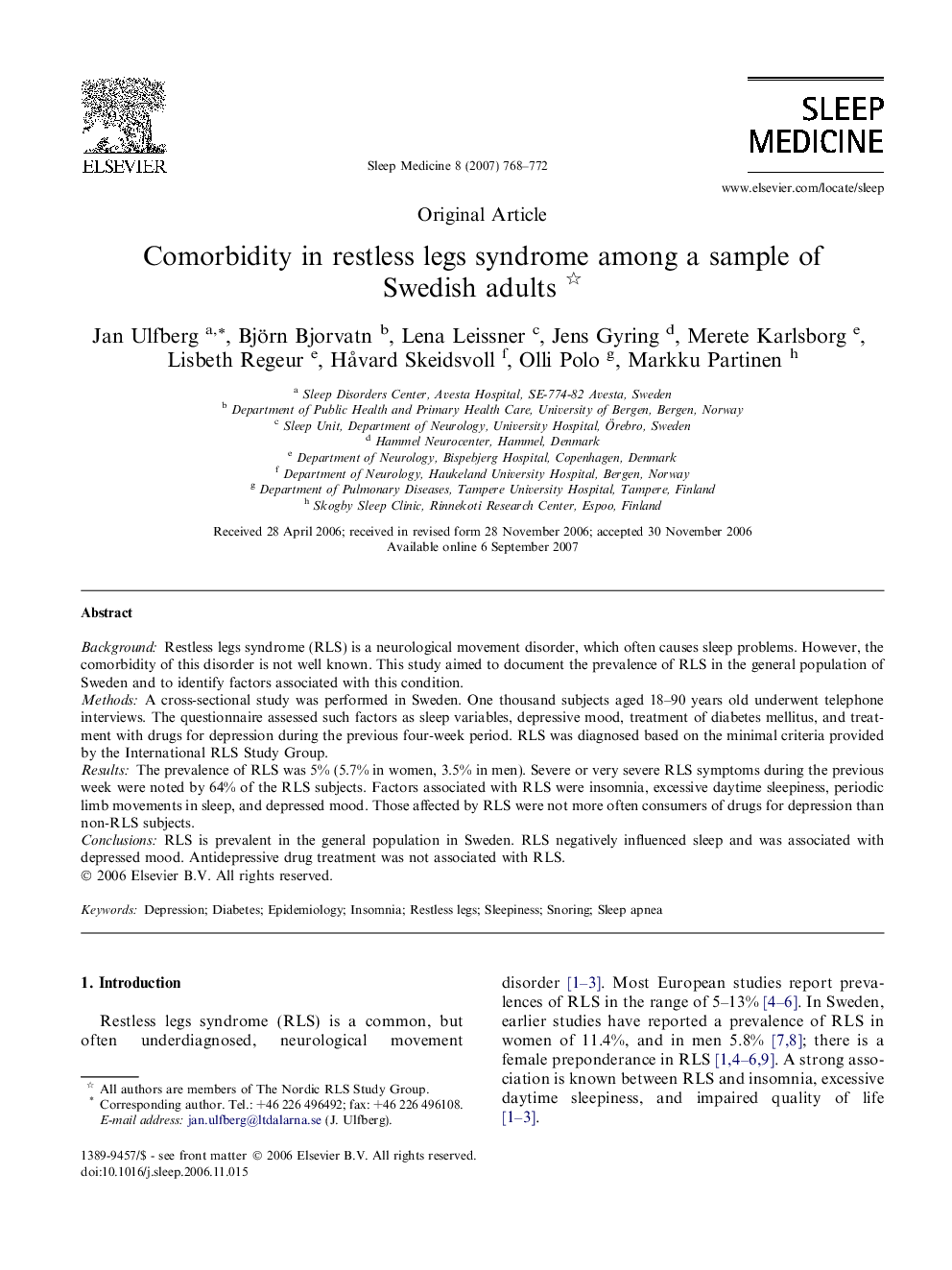| Article ID | Journal | Published Year | Pages | File Type |
|---|---|---|---|---|
| 3177685 | Sleep Medicine | 2007 | 5 Pages |
BackgroundRestless legs syndrome (RLS) is a neurological movement disorder, which often causes sleep problems. However, the comorbidity of this disorder is not well known. This study aimed to document the prevalence of RLS in the general population of Sweden and to identify factors associated with this condition.MethodsA cross-sectional study was performed in Sweden. One thousand subjects aged 18–90 years old underwent telephone interviews. The questionnaire assessed such factors as sleep variables, depressive mood, treatment of diabetes mellitus, and treatment with drugs for depression during the previous four-week period. RLS was diagnosed based on the minimal criteria provided by the International RLS Study Group.ResultsThe prevalence of RLS was 5% (5.7% in women, 3.5% in men). Severe or very severe RLS symptoms during the previous week were noted by 64% of the RLS subjects. Factors associated with RLS were insomnia, excessive daytime sleepiness, periodic limb movements in sleep, and depressed mood. Those affected by RLS were not more often consumers of drugs for depression than non-RLS subjects.ConclusionsRLS is prevalent in the general population in Sweden. RLS negatively influenced sleep and was associated with depressed mood. Antidepressive drug treatment was not associated with RLS.
